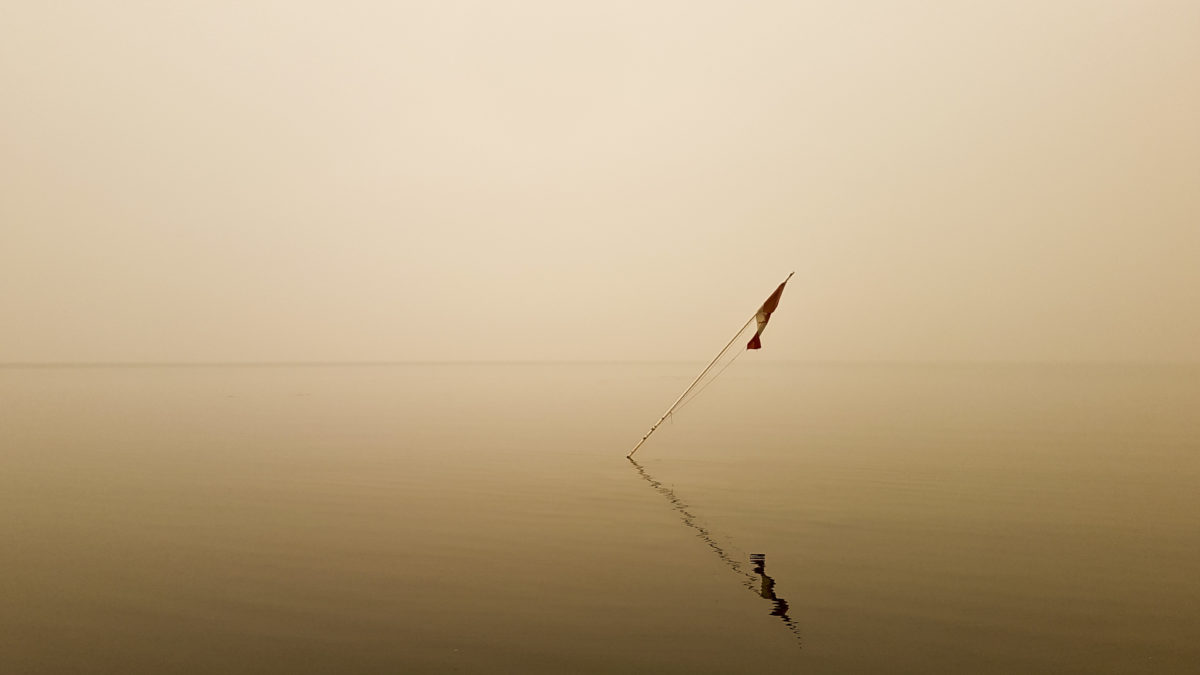Whether you’re going for a walk, staying inside, or tossing a frisbee through thick haze at the beach, here’s way to avoid this year’s smoke

Amid a time full of hypotheticals in Canada’s sports world, while billions of dollars are being tossed around for free agents in both the NBA and NHL, there’s one certainty that’s bound to take place this summer: wildfires.
The past two years have been a couple of the worst fire seasons on record for B.C.
Last summer, over 2 000 fires burned over 1.3 million hectares of our province, which surpassed the previous record of 1.2 million hectares from the summer of 2017. 66 evacuations were ordered, and the total cost for fighting those wildfires surpassed 600 million.
Baby blue skies were replaced with ash gray clouds of smoke, causing coughing fits and fears of the impact from spending time outdoors for Canadians from Victoria to Winnipeg.
It’s not just residents of B.C. that have been plagued by the yearly smoke. In fact, this year’s wildfire season began two months ago in Alberta, when the city of Edmonton was blanketed by an orange haze that made it look like a city straight out of the apocalyptic movie 2012.
On the last day of May, 28 active fires forced 10 000 people to be evacuated from their homes in Northern Alberta, and the smoke drifted east to major U.S. cities like Chicago, Kansas City, and Minneapolis.
Meanwhile, earlier that month in the central region of our province, a wildfire burned near Fraser Lake that caused citizens to evacuate and the district of Buckley-Nechako to order a state of emergency.
There’s 16 current wildfires burning in B.C. (at time of writing), including one blaze ripping up over 120 000 hectares near Alkali lake, and 11 blazes active in Alberta — which has already seen 804 000 hectares of its province burn up in flames, up over 600 000 hectares from the previous five year average of 206 290.
It’s only July, I know, and I don’t want to be a pessimist and worry you about the impending smoke, but the B.C. Wildfire Service has already predicted another abnormally hot, dry summer. While I hope the experts are wrong and we see nothing but sunshine and clear skies through Labor Day, it doesn’t hurt to be prepared.
Here are five ways to prepare for the smoke. Although a lot of these messages may seem like common sense, remember the old saying from Smokey the Bear, ‘Only you can prevent forest fires.’
Check the local air quality index
Before you leave the house, and especially if you have a respiratory disease, check your local Air Quality Health Index (AQHI) for warnings about the smoke.
The AQHI is a scale designed to help you understand and measure the daily air pollution in your city. It reads the air quality on a scale from one to 10, with the higher the number being the greater risk to your health.
On the scale, any “low risk” air quality is classified from one to three, with moderate listed from four to six, and high seven to 10. Any number over 10 indicates a “very high risk” to your health.
Last August, the wildfires raging across the province brought some of the worst air quality ratings in the world to Vancouver Island. The smoke made Victoria’s air quality even with big metropolis cities like Shanghai, China and Mumbai, India.
Make a grab and go bag
The Honourable Mike Farnworth, Minister of Public Safety and Solicitor General, said earlier this month that “the first step in managing any kind of emergency is to be prepared as possible.”
He advised British Columbia to get themselves prepared for the potential of another long, smoky summer, by making a grab and go bag that includes typical first aid equipment such as flashlights, food and water, and a radio.
Everyone should have a grab and go bag in their house and workplace, and ensure that others know where to find it in case of an emergency evacuation.
Prevent wildfires from starting
While 60 per cent of wildfires are caused by lightning, there’s still about 40 per cent of fires ignited by humans. If you’re camping make sure you take the time to prepare, build, and maintain your campfire.
When you’re finished, properly extinguish the flames, and if there’s a fire ban, abide by the fire restrictions. Even though those summer s’mores are so tasty, you can buy Oreo s’mores online or at your local grocery store!
You can check on fire restrictions in B.C. online.
Avoid activities that increase indoor air pollution
Close your windows, let the air conditioner or fan run, and avoid burning candles inside. If you can go a few days without vacuuming your room, it may be best to avoid the vacuum entirely as the machine can stir up particles in your house.
Unfortunately, stay inside…
At the end of the day, your best bet to avoid the smoke may be to stay inside. Curl up to a book, watch Netflix, or, if you still pay for cable like me, watch television. Enjoy the last few days before school starts in the fall, or if you’re still in school, work on your homework inside.







